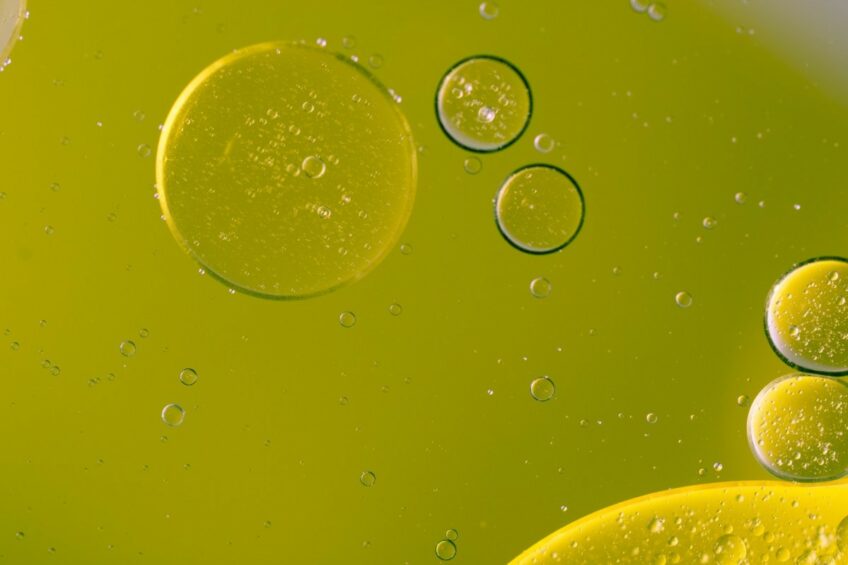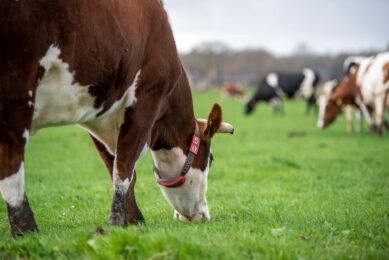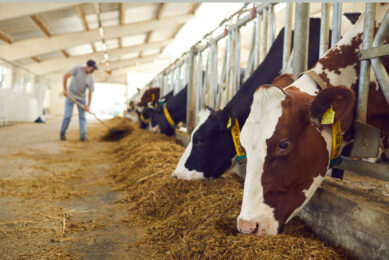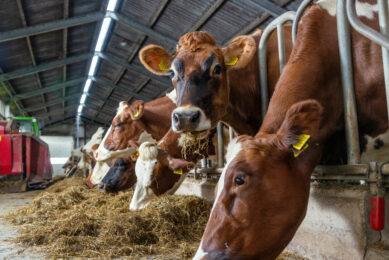Plant oils added to grass silage reduces methane

Adding plant oils to a grass-based diet can reduce methane output by the cows and has a beneficial effect on certain fatty acids in the milk.
This is concluded from research done by the Natural Resources Institute Finland (Luke). The results are published in the Journal of Dairy Science.
Nutritional approached to reduce methane
It is well known that ruminants contribute to the total amount of greenhouses gases in the form of methane (CH4) emissions (belching and farting). Several nutritional and management strategies can be used to minimise the effects from cattle. Earlier trials also included the use of plant oil and oilseeds. One or more mechanisms are thought to contribute to the decrease in CH4 production to dietary lipid supplements, including lowered digestion of organic matter in the rumen, shifting rumen fermentation from acetate toward propionate production, and direct inhibitory effects on methanogens and protozoa. However, earlier trials also showed that at higher inclusion levels of the oils, feed intake is often compromised and changes in the rumen microbial community associated with decreased ruminal CH4 production to lipid supplements are not well characterised. Combined with the fact that manipulating milk fatty acid content of milk can be beneficial for humans, a group of Finnish researchers decided to set up a trial to test all of these elements.

4 different plant oils tested in Nordic Red cows
The research team wanted to test the suitability of dietary lipid supplementation as a CH4 mitigation strategy that can simultaneously improve milk fatty acid composition using diets based on restrictively fermented grass silage. In the study, 4 lipid supplements varying in chain length or degree of unsaturation were used and supplemented to the diet of 5 Nordic Red cows (fitted with rumen cannulas). The diet consisted of total mixed rations based on grass silage with a forage to concentrate ratio of 60:40 supplemented with no lipid (CO) or 50g/kg of diet dry matter (DM) of myristic acid (MA), rapeseed oil (RO), safflower oil (SO), or linseed oil (LO).
Effects on DMI and milk components
It was shown that feeding MA resulted in the lowest DM intake, and feeding RO reduced DM intake compared with CO. Feeding MA reduced the yields of milk, milk constituents, and energy-corrected milk. Plant oils did not influence yields of milk and milk constituents, but reduced milk protein content compared with CO. Treatments had no effect on rumen fermentation characteristics, other than an increase in ammonia-N concentration due to feeding MA, RO, and SO compared with CO. Lipid supplements reduced daily ruminal CH4 emission; however, the response was to some extent a result of lower feed intake. Lipids modified microbial community structure without affecting total counts of bacteria, archaea, and ciliate protozoa. Dietary treatments had no effect on the apparent total tract digestibility of organic matter, fibre, and gross energy. Treatments did not affect either energy secreted in milk as a proportion of energy intake or efficiency of dietary N utilisation. All lipids lowered de novo fatty acid synthesis in the mammary gland. Plant oils increased proportions of milk fat 18:0, cis 18:1, trans and monounsaturated fatty acids, and decreased saturated fatty acids compared with CO and MA. Both SO and LO increased the proportion of total polyunsaturated fatty acids, total conjugated linolenic acid, and cis-9,trans-11 conjugated linoleic acid. Feeding MA clearly increased the Δ9 desaturation of fatty acids.
Also read: Reducing methane with 30%
Conclusion
Based on these outcomes, the researchers state that these insights provide compelling evidence that plant oils supplemented to a grass silage-based diet reduce ruminal CH4 emission and milk saturated fatty acids, and increase the proportion of unsaturated fatty acids and total conjugated linoleic acid while not interfering with digestibility, rumen fermentation, rumen microbial quantities, or milk production.
Join 13,000+ subscribers
Subscribe to our newsletter to stay updated about all the need-to-know content in the dairy sector, two times a week.










